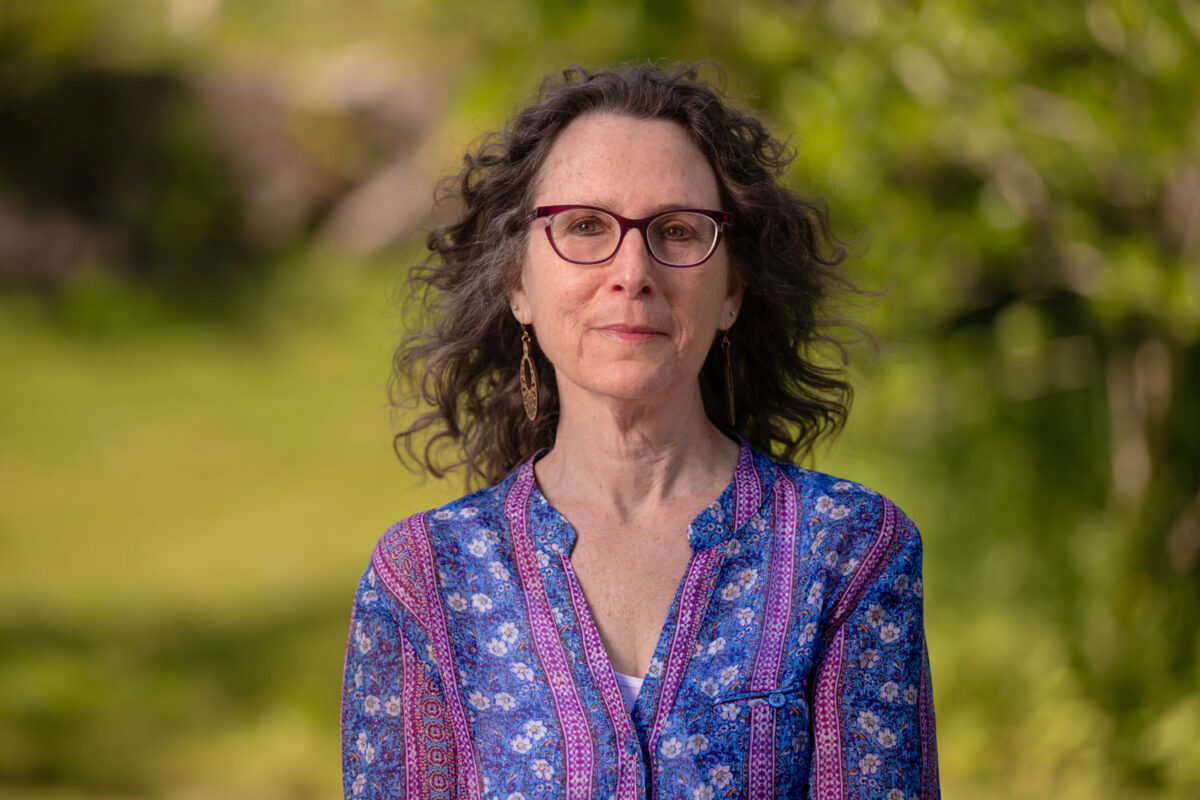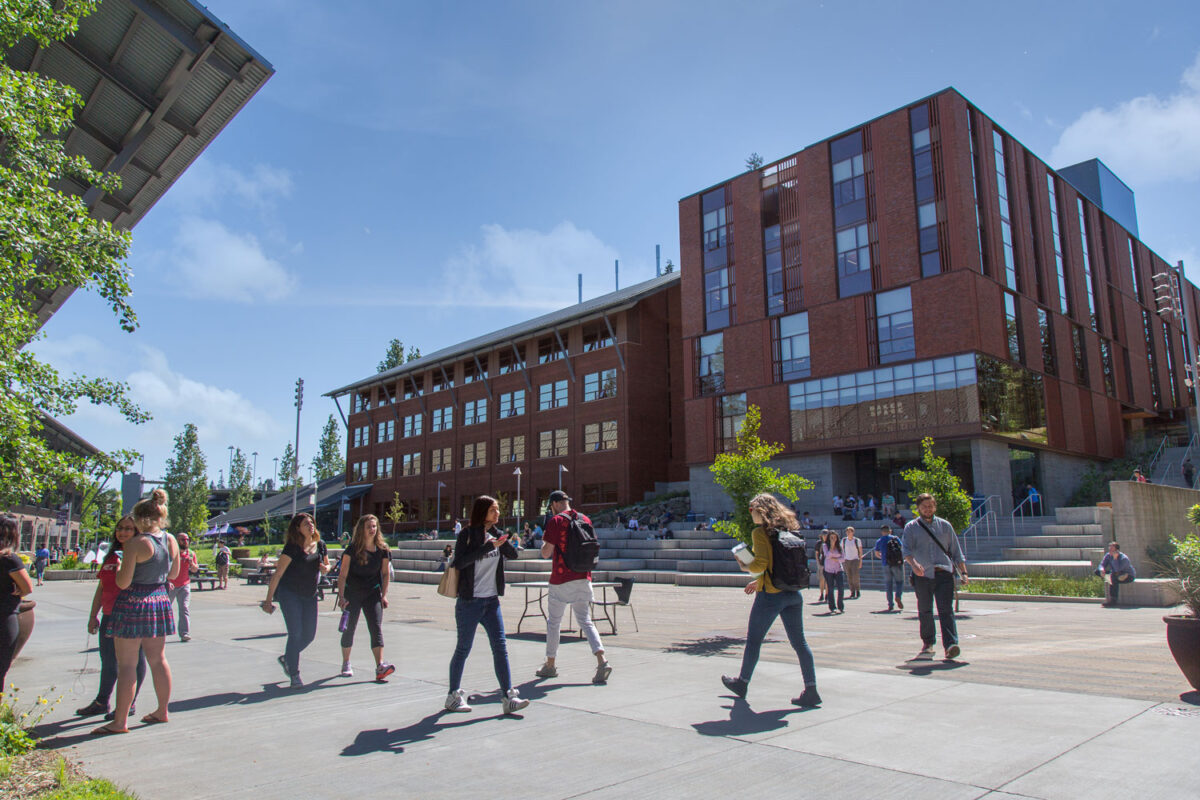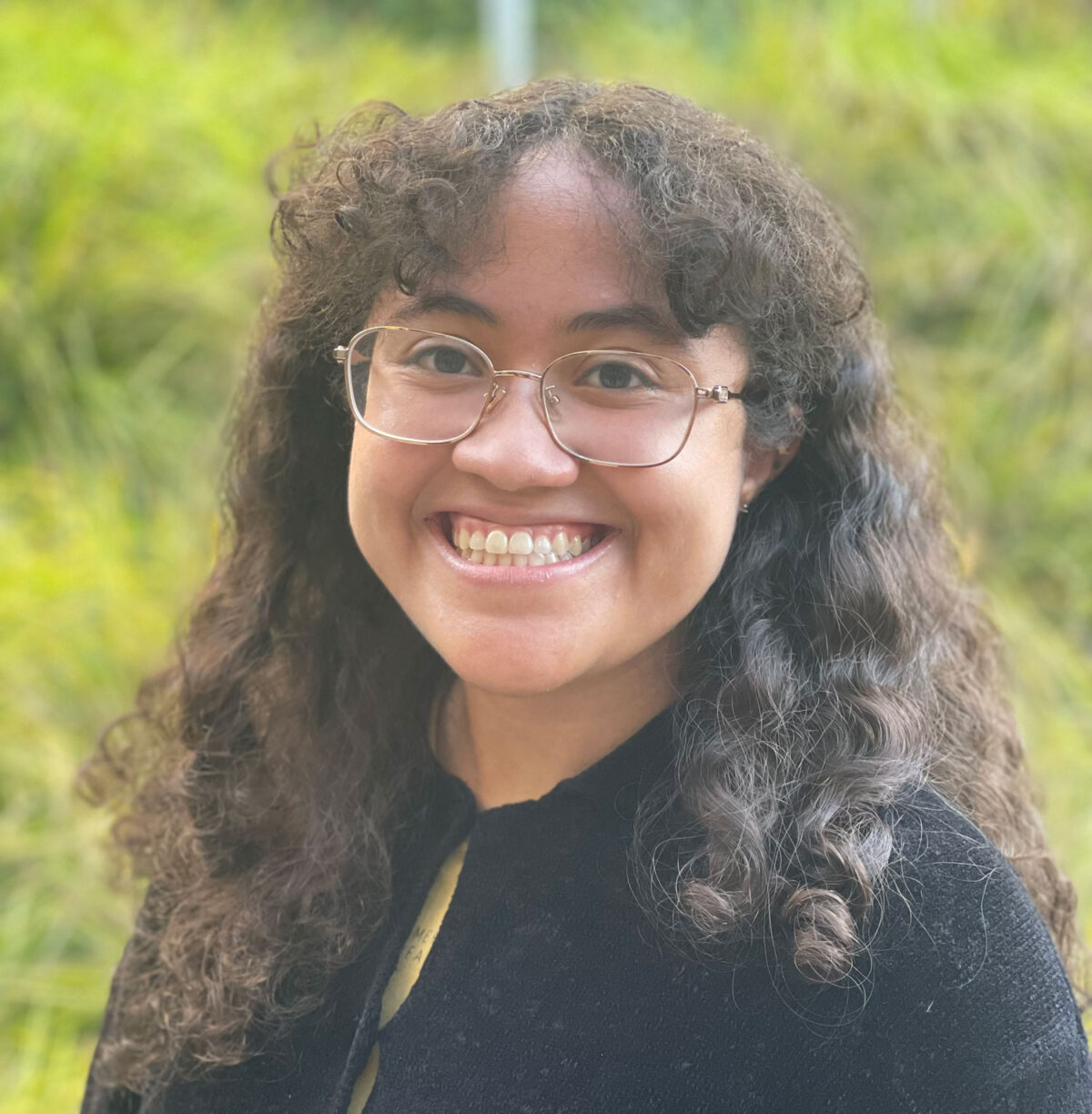The goals of gardeners may vary, but often their purpose for plants is to provide beauty. And while there is nothing wrong with wanting an aesthetically pleasing garden, there are other things that are more important. Tyson Kemper, grounds supervisor at the University of Washington Bothell, said that in the hierarchy of importance, beauty should come third.
“I like to turn the idea of beauty on its head. I always say sort of tongue and cheek that ‘beauty is third,’” he said. “The first priority should be creating ecological function, taking into consideration the land and the plants that we choose. Second is whether or not the plants are relevant to human need — are we growing medicine, food or materials? If the first two are satisfied, then that, to me, is beautiful.”
Kemper, who has been working at the University for 16 years, uses his notion of beauty to enhance the campus grounds which have gained national recognition for their sustainability. From composting food waste on campus and organically managing the landscape to restoring wetlands and planting edible food for harvest — Kemper and the grounds team are some of the most ardent supporters and practitioners of sustainability at UW Bothell.
Farm, forest and food
The grounds team has been instrumental in the success of the Campus Farm, which produces hundreds of pounds of food each year that is donated to people experiencing food insecurity. It consists of 10 raised beds where herbs and vegetables are grown, two cold frames that tend to salad greens and an orchard that supplies a variety of fresh fruits. The farm provides the Husky Pantry at UW Bothell and Kodiak Cave at Cascadia College with this locally grown produce on a regular basis, as its harvest allows.
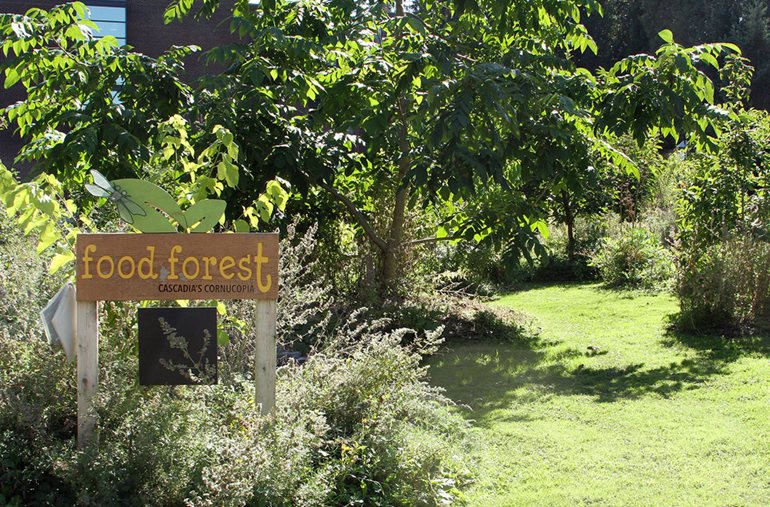
The team also grows food for anyone on campus to enjoy, at any time. One can simply walk by the Cascadia College Food Forest and pick up a handful of mulberries as a quick and healthy snack. Or, if they are looking to enhance their dinner, they can also take home freshly grown herbs.
In 2021, the food forest won an award from the Association for the Advancement of Sustainability in Higher Education, an organization that leads global sustainability transformation in higher education. “I am proud to be a part of a University that truly cares and does the work,” Kemper said.
Salmon-Safe Certified
Kemper and the grounds team take great care of the campus for a myriad of reasons, one of which is because it’s part of the 58-acre North Creek Wetlands. “The North Creek Wetlands support local birds, beavers, fish and other wildlife — along with hundreds of different plant species,” Kemper said. “It’s one of the best campus living laboratories in the nation.”
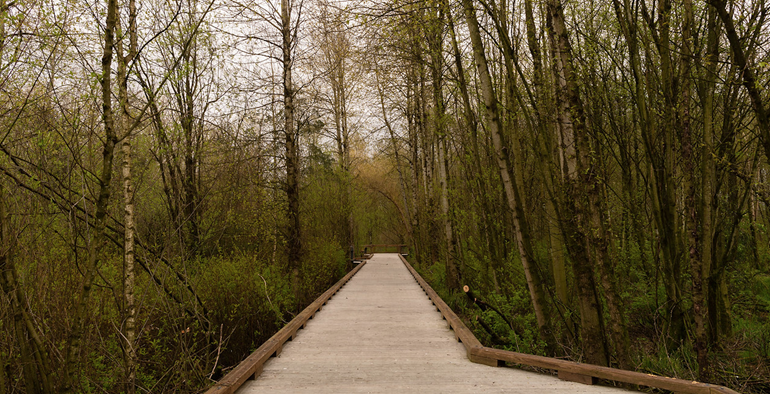
But with this much life, comes great responsibility. One of the species to inhabit the wetlands is salmon, and in the Pacific Northwest some salmon species are an endangered. Committed to sustainability, the University prioritized making a safe and supportive environment for these fish to thrive. In 2008, UW Bothell became the second college in the nation to get Salmon-Safe Certified.
“It’s a really thorough process,” Kemper explained. “To get this certification, you have to provide documentation, make change and prove that the change is sustained. The organization holds us accountable for continuing these practices, and I love that because I don’t want accolades just for the sake of them. This is something I am genuinely proud of. I know we are doing what we say we are doing, and that makes us worthy of this award.”
The criteria for this certification goes well beyond just gardening practices. While practicing organic land care — no pesticides, herbicides or synthetic fertilizers — is required, it also takes into consideration the composition of roofing, siding and other building materials. “The folks at Salmon-Safe want to make sure there are no toxins that could potentially get released into the streams,” Kemper said. “And we take great care in ensuring that there are not.”
Native plants support wildlife
April is Native Plant Appreciation Month, but the grounds staff appreciate, and prioritize, the use of native plants year-round. “Native plants provide nectar for pollinators including hummingbirds, native bees, butterflies, moths and many more,” Kemper said. “Plus, the native nuts, seeds and fruits produced by these plants offer essential foods for all forms of wildlife.”
Working together, the sustainability offices of Cascadia College and UW Bothell recently secured a grant from the Washington Native Plant Society to pay for three native-plant pollinator beds on campus. The purpose for this grant is to add more native plants to campus that would provide the most benefit to pollinators over the longest period of time.
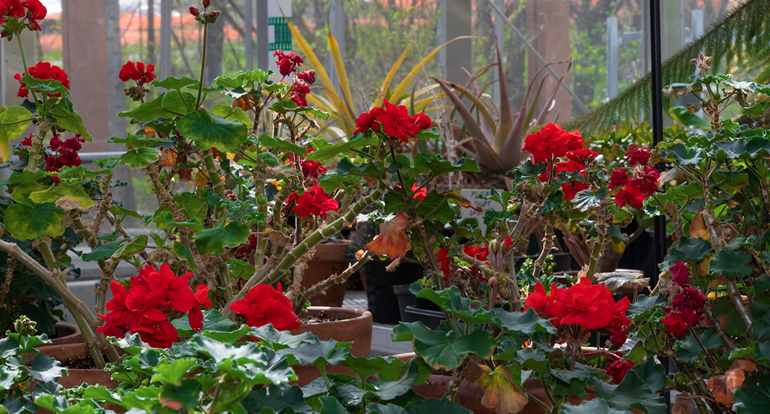
Kemper explained that, “Like humans, pollinators have to eat all of the time, but the problem is most plants aren’t in bloom very long, and there are times during the season in which there are not many plants in bloom on campus at all.
“The grant will allow us to grow a variety of native plants that bloom at different times of the year, ensuring that pollinators have a stable, consistent food supply.”
UW Bothell is a STAR
The grounds staff take great care tending to the plants on campus, yet there is one thing they prefer not to tend to — the grass. For those who dread mowing their lawns, here is permission to forsake the chore altogether as Kemper said it would be doing the ecosystem a favor. “What most people look at and assume is a patch of grass is often dozens of different plants, all with a different purpose and benefit,” he said.
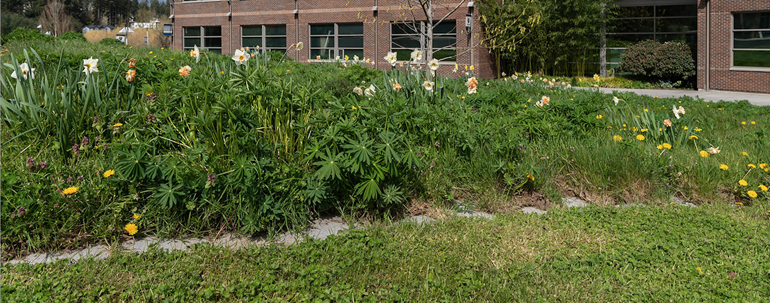
“We mow as little as possible. If the grass grows long enough it provides seed and food for creatures, cover for rodents and small animals, and habitat for them to live in which then supports eagles, coyotes and racoons,” Kemper said. “One small thing can make a really big difference.”
This year all of those small things added up, and for the first time in campus history, UW Bothell received a gold star from the STARS (sustainability, tracking, assessment and rating system) program of the AASHE. STARS is a global sustainability standard created by and for higher education — and gold is the second highest honor an institution can receive.
Tony Guerrero, associate vice chancellor for Facilities Services & Campus Operations, said, “I want to thank the students, faculty and staff who made this happen. We together received this STARS rating by the way we teach, conserve and learn about sustainability on this campus.”
Kemper, too, is thrilled about the award. “It’s a testament to the collective effort of the campus community to think, teach and act in a more sustainable way, a way that not only benefits the campus community and the region, but, I like to think, the world.”
Tips from Tyson
For those wanting to follow in the grounds team’s footsteps, Kemper shared some of the practices he and his team take at the University and that others can do at home.
- The majority of plants “outplanted” into the campus landscape are propagated in either the Sarah Simonds Green Conservatory or the native plant nursery, both located on campus and maintained by the grounds team. This includes nearly all the annual flowers that fill the Promenade display pots each year. Kemper said propagating plants and planting them when they have grown helps them to survive in a competitive environment. “Trying to grow a tiny plant with big trees and weeds is going to be challenging as it’s so easy for them to get consumed. Planting them when they are larger gives them a much better chance at survival.”
- Nearly all the green waste generated by the campus landscape, such as leaves, weeds, branches and grass clippings, are kept on campus and reabsorbed by the campus landscape. All the grass clipping are mulch mowed immediately back into the lawns, all leaves and weeds are composted and returned to the garden beds, and all woody debris is chipped and applied as mulch throughout the campus. Kemper explained that this is an important practice as those are the resources that improve the environment over time, which is fundamental in successful gardening. “Essential to a healthy ecosystem is organic matter, the things that come from plants are the perfect medicine and nutrients for them to grow,” he said. “When leaves fall from your tree, don’t rake and remove them — let the trees reabsorb them instead.”
- Plant native plants! “Not only do they provide benefit to the wildlife, but they are also easy to maintain as they are adapted to the environment and require less care,” he said. “It’s easier, and more beneficial.”

